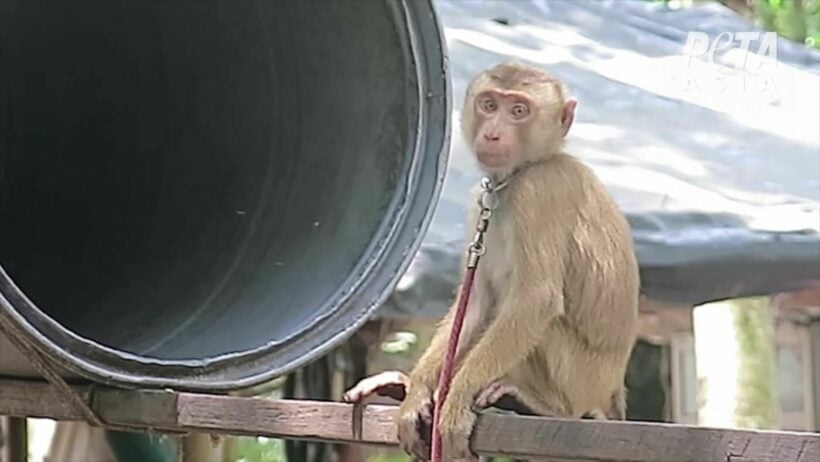Walmart didn’t ban Thai coconut milk, says Ministry of Commerce

Walmart allegedly took Chaokoh coconut milk off their shelves in response to PETA’s claims that the Thai brand uses monkey labour in the production of their famous coconut milk. Today, Thailand’s Ministry of Commerce said Walmart “hasn’t banned Thai coconut milk,” but didn’t mention any specific brands.
The US animal rights non-profit organisation PETA conducted an investigation into monkey labour in Thailand in 2019, singling out Chaokoh for monkey abuse. The report claims that monkeys are “chained, abused, and forced to climb trees to pick coconuts that are used to make coconut milk, meat, flour, oil and other products.”
PETA posted disturbing videos of monkeys, fitted with metal collars, to support their claims that young monkeys were being illegally abducted from their families and abused for coconut milk production.
Today, Director-General of the Ministry of Commerce’s Department of International Trade Phusit Rattanakul Sareeruengrit said he contacted the US Ambassador of Commerce in regard to the monkey labour scandal. The ambassador allegedly told Phusit that Walmart is still stocking and selling Thai products, including coconut milk. However, Phusit didn’t mention anything about Chaokoh’s coconut milk in particular.
A quick search on Walmart’s website reveals that Walmart currently stocks 2 Chaokoh products: tinned banana blossom in brine and tinned jackfruit in syrup. However, there is no sign of Chaokoh’s coconut milk on their website.
PETA’s 2019 report negatively impacted Thailand’s coconut export industry in a small way, according to the ministry. In 2021, the market was valued at 26,582.56 million baht, a reduction of 2.57%. America receives a whole quarter of all Thai exported products.
Wegmans supermarket dropped Chaokoh coconut milk in 2020, prompting Chaokoh to release a statement saying “we do not engage the use of monkey labour in our coconut plantations,” adding that suppliers have signed memorandum agreements to not use monkey labour at their farms.
Monkeys retrieving coconuts for human consumption does have a history in Thailand’s communities, but the practice has no place in commercial coconut milk production or in any commercial industry for that matter, said Phusit.
Phusit said the coconut milk industry uses human labour and machinery only and all coconut products meet international standards. He said coconut farmers and other staff have “good welfare.” In 2014, Thailand passed the Cruelty Prevention and Animal Welfare Act in an attempt to improve animal welfare across all sectors, he added.
Thailand’s Department of Trade is currently making a fact sheet about how coconuts are grown, stored and turned into products in an attempt to repair the industry’s tarnished reputation.
SOURCE: CH7
Latest Thailand News
Follow The Thaiger on Google News:


























